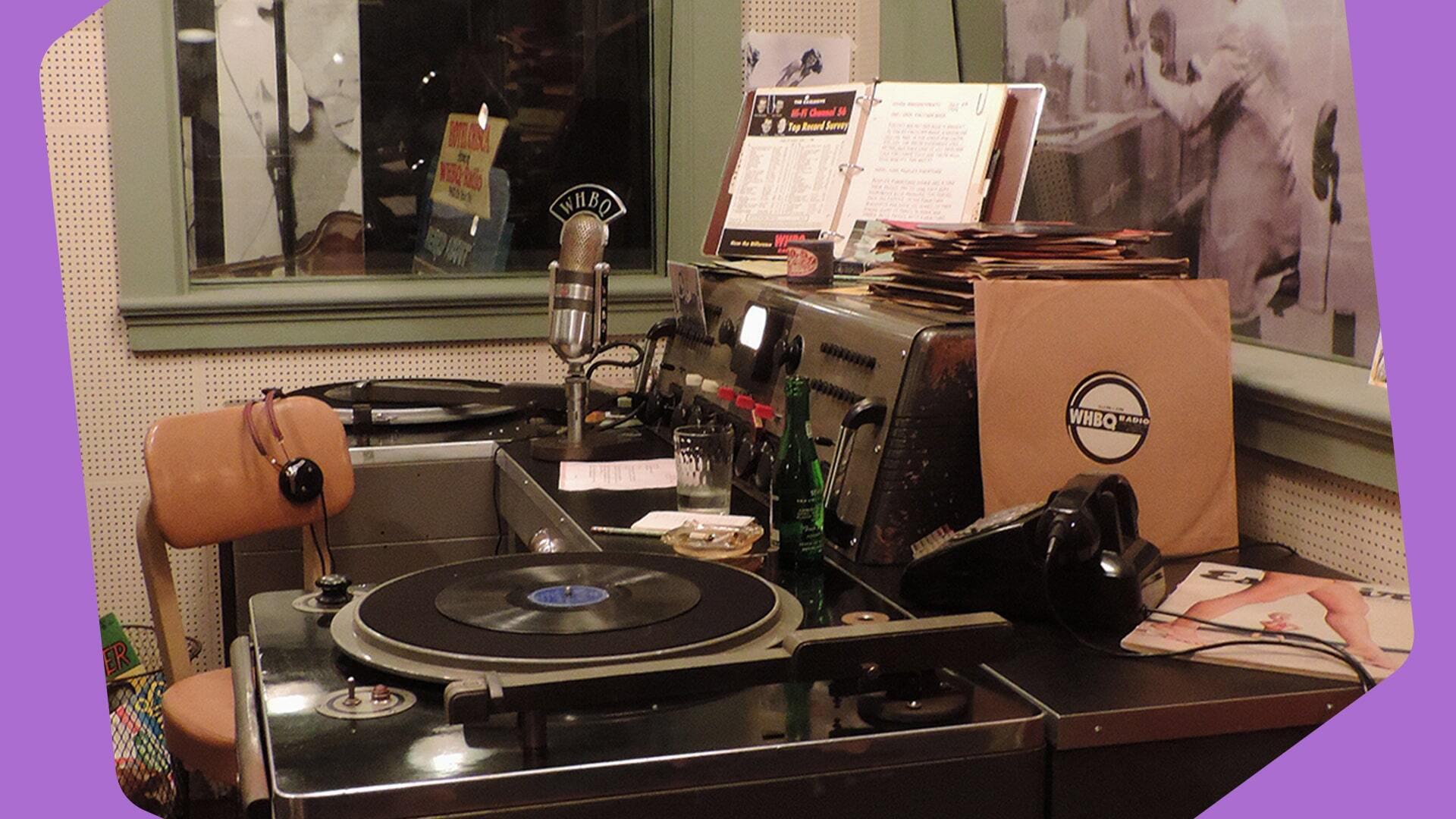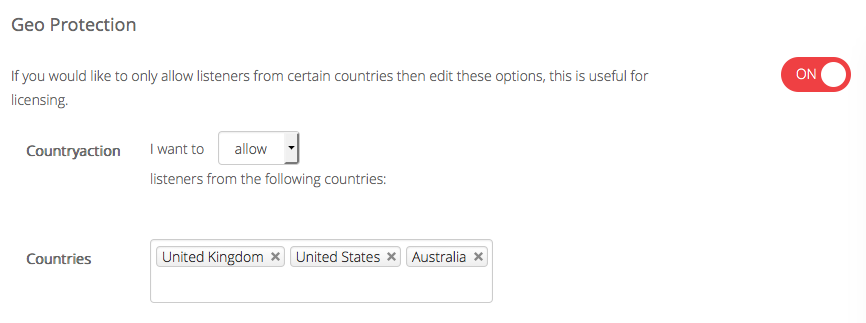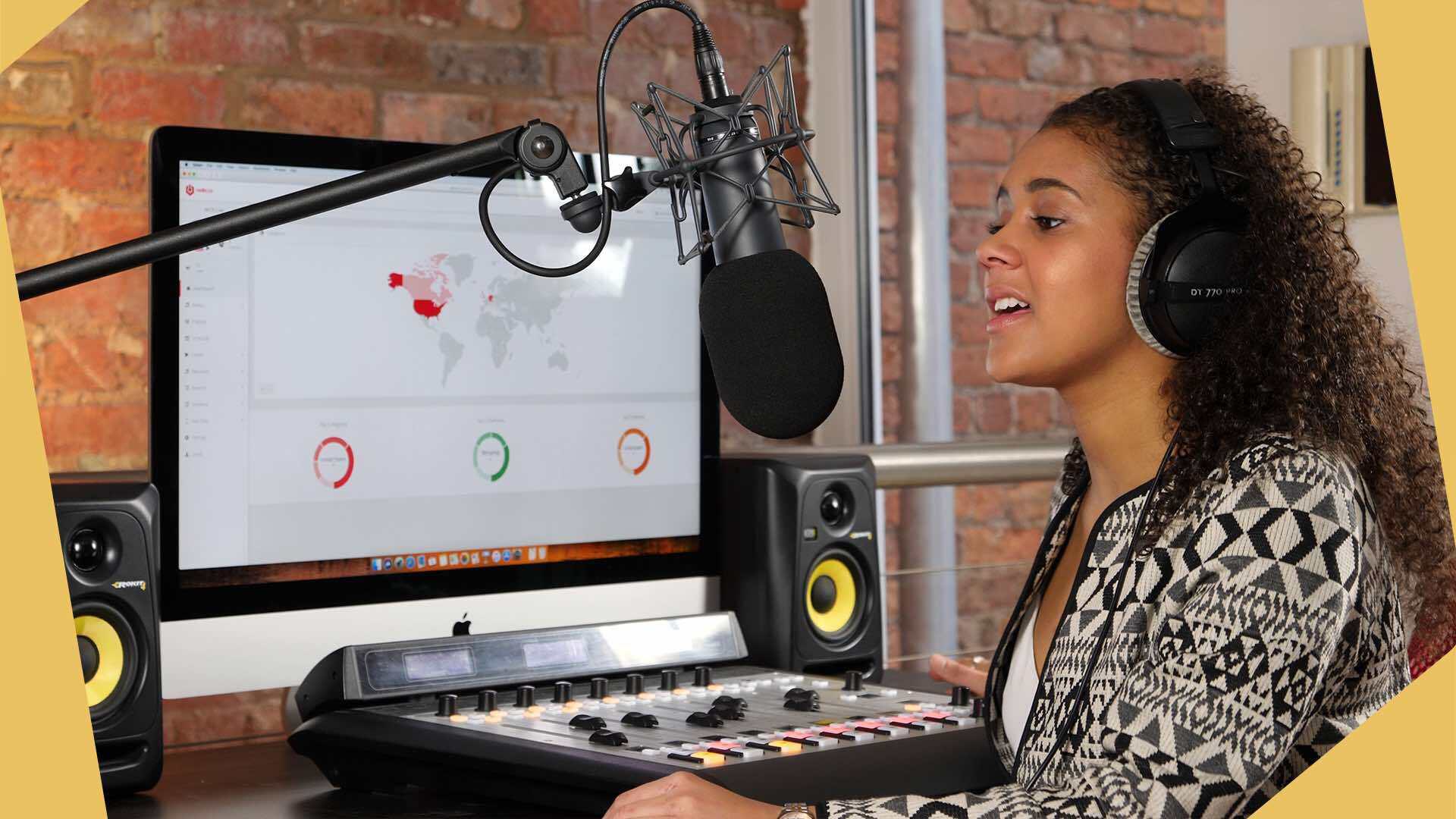Need advice? Let's talk.
Get straightforward guidance from your broadcasting partner. Schedule a call to chat with the team about your radio station.
Book DemoDo I Need a License for Internet Radio?
Safeguard yourself with a license for internet radio. And get to know tools at your disposal to control your station's output.

One of the first questions you may ask yourself when entering the world of online broadcasting is: "Do I need a license for internet radio?". Unfortunately, there’s no easy answer to this question, as it depends on what you plan to broadcast and where in the world you’ll be broadcasting to. Discover what licenses are available to you and how they affect your station’s ability to operate and broadcast music.
Disclaimer: Radio.co does not provide licensing. We recommend always consulting with qualified professionals or the relevant authorities for your country regarding copyright and licensing. The following advice is not to be taken as legal advice, but instead, act as a stepping stone to get you to the right place.
Licensing for Internet Radio Explained
Quick disclaimer, we always recommend always consulting with qualified professionals or the relevant authorities for your country regarding copyright and licensing. The following isn't to be taken as legal advice, but to give you the tools needed to safeguard your radio station.
Unlike terrestrial radio, you don’t need to own a license in order to broadcast your stream online.
However, if your station is going to be playing commercial music, you will need to obtain a license in order to fully protect yourself and ensure you are not infringing on anyone else’s copyright. In most cases, the copyright for a song is held by the recording artist or record label, who then receive royalties when the music is broadcast in a public space, which includes play on online radio stations.
Alternatively, if you plan on broadcasting royalty-free music or talk radio, you’re free to stream it from your station without any form of license. But if you want to play the latest hits, like the Top 40, then you will need to get a license.
Cover All with Blanket Licensing
Most internet-only radio station’s cover themselves by paying for what’s known as a "blanket license" or "umbrella license". These cover their stations and allow them to play any type of copyrighted music.
Most licenses like this are paid for on a yearly basis and can vary in price depending on the country you are broadcasting from and the countries you plan on broadcasting to.
In some instances, if licenses covering particular countries aren’t in your price range then you can block access from listeners by using "geo-protection".
Block Listeners with Geo-Protection
The Radio.co Geo-Protection feature allows you to easily block or allow listeners from any country, which is handy depending on the license your radio station has.

Radio.co gives you the ability to allow certain countries exclusive access to your station, which blocks all other countries by default. This will protect you from any legal issues you could come across if your license doesn’t cover specific areas.
Find Your Licensing Body
There are a variety of organisations and bodies ready to answer the question "Do I Need a License for Internet Radio?". It's their job to look after music copyright and royalties depending on your country.
Here are the UK's licensing bodies:
- PRS: The “Performing Rights Society” collects royalties on behalf of artists, composers, and cover music that’s played on TV, radio, and online.
- PPL: The PPL represents the interests of record labels and collects royalties from radio stations on their behalf.
Choosing a license solely rests on where you intend to broadcast audio, for instance, if your audience is in the USA then you can use SoundExchange. Here are a few internet radio licensing bodies by country.
Note: Please bear in mind some organisations don't clearly state their licensing options, so you may have to contact them directly for more details.
- Australia: PPCA
- Argentina: SADAIC
- The Bahamas: URCA
- Bangladesh: BTRC
- Bolivia: SOBODAYCOM
- Brazil: ABERT ABRAMUS UBC
- Bulgaria: CRC
- Canada: SOCAN
- Chile: SCD
- Columbia: SAYCO
- Costa Rica: ACAM
- Cuba: ACDAM
- Cyprus: CRTA
- Dominican Republic: SGACEDOM
- Ecuador: SAYCE
- El Salvador: SACIM
- Finland: TEOSTO
- France: SACEM
- Germany: GEMA GVL
- Greece: GEA
- Guatemala: AEI
- Honduras: AACIMH
- Iceland: STEF
- India: IPRS
- Indonesia: ORARI
- Ireland: PPI
- Italy: NUOVOIMAIE
- Jamaica: JACAP JAMMS
- Kenya: PRISK KAMP MCSK
- Lithuania: LRMD
- Luxembourg: SACEM Luxembourg
- Malta: Broadcasting Authority Malta
- Mexico: SACM
- Netherlands: SENA BUMA/STEMRA
- New Zealand: APRA
- Nigeria: NBC
- Peru: APDAYC
- Poland: ZPAV ZAIKS STOART SAWP
- Portugal: ANACOM ERC SPA PASSMUSICA
- Romania: CREDIDAM
- Russia: VOIS
- Serbia: SOKOJ
- Slovenia: AKOS
- South Africa: CAPASSO ICASA
- Spain: SGAE
- Sweden: STIM
- UK: PPL PRS
- United Arab Emirates: TRA
- Uraguay: AGADU
- USA: ASCAP BMI SESAC SoundExchange
- Venezuela: SACVEN
- West Africa: MOICI
Working out what type of license you need and which body to speak to can seem like navigating through a minefield. PPL in the UK, for instance, only allows small or standard broadcasters to stream to a certain amount of countries.

Check out our article Do I Need a Radio Broadcasting Licence? for a more extensive list of licensing bodies around the world.
There are lots of companies set up to make broadcasting online easier by providing you with a blanket license. These companies cover online radio broadcasters under what's known as a "statutory license".
Statutory Licensing Explained
Radio broadcasts online are defined as "non-interactive", meaning they fall under the statutory license, which covers pre-programmed shows where listeners cannot skip songs or select their own music.
Statutory licenses apply to the USA and other broadcasting countries, but not the UK, so it’s recommended you research the right solution when finding a statutory license.
Statutory license fees differ; SoundExchange charge $1000 per year and BMI charge $352, but costs can go up or down depending on royalty rates and other factors across the world and are liable to change over time.
You can get more cost-effective licenses if you plan on broadcasting only to a particular country like the USA or UK, in which case we recommend shopping around and finding the right license to fit your needs.
Alternatively, if you’re planning on running a station that streams royalty-free music or just talk content with no music at all then you don’t necessarily require a license.
Royalty-Free Music
A common misconception about royalty-free music is that you can broadcast tracks free of charge. This is incorrect. Instead, you need to pay for a music license and then you can use the music for as long as you want and play it however many times as you want without yearly fees. These licenses require a one-off payment, and you won’t be charged again.
A royalty-free license is usually a lot cheaper than a statutory license because you are not buying tracks for a set amount of time; you’re purchasing the rights to use tracks forever.
There are many great services online that represent artists’ royalty-free music, here are a few of the best:
- Jamendo Music: Independent community to discover and download trending tracks.
- AudioJungle: Thousands of royalty-free audio files from just $1.
- Storyblocks: Unlimited royalty-free audio that offers music, sound effects, and jingles.
Alternatively, if you’re looking for royalty-free jingles, original music or voiceovers for your radio station then try Fiverr or VoiceBunny.
How To Cut Internet Radio Licensing Costs
Only Broadcast To Specific Countries
The more countries you broadcast to, the more you'll pay for licensing costs. Therefore, if you make your radio station only available to one or two countries, you'll pay less than if it's available globally. The Radio.co Geo-Protection feature allows you to easily block or allow listeners from any country, which is handy depending on the license your radio station has.

Radio.co gives you the ability to allow certain countries exclusive access to your station, which blocks all other countries by default. This will protect you from any legal issues you could come across if your license doesn’t cover specific areas.
Use Royalty-Free Music
While royalty-free music isn't actually free, it certainly can be cheaper than the well-known hits. If royalty-free music is suitable for your station, then it's worth exploring. Whilst not useful for a Top 40 station, it could be a low-cost solution for a talk radio-station needing a small amount of music.
Get Permission From Copyright Holders
As anyone who manages a radio station's email address knows, there are plenty of musicians looking for air-time in exchange. Why not support independent artists by getting their expressed permission and playing their music on your station. It's also a great way to involve your station in your community, like Shady Pines Radio.
Need Some Licensing Help?
Obtaining licensing for internet radio can be confusing. But at Radio.co we’re always happy to lend a hand. Whether that’s what license you need or tips on getting started, take a quick tour and get sound advice by booking a demo.



